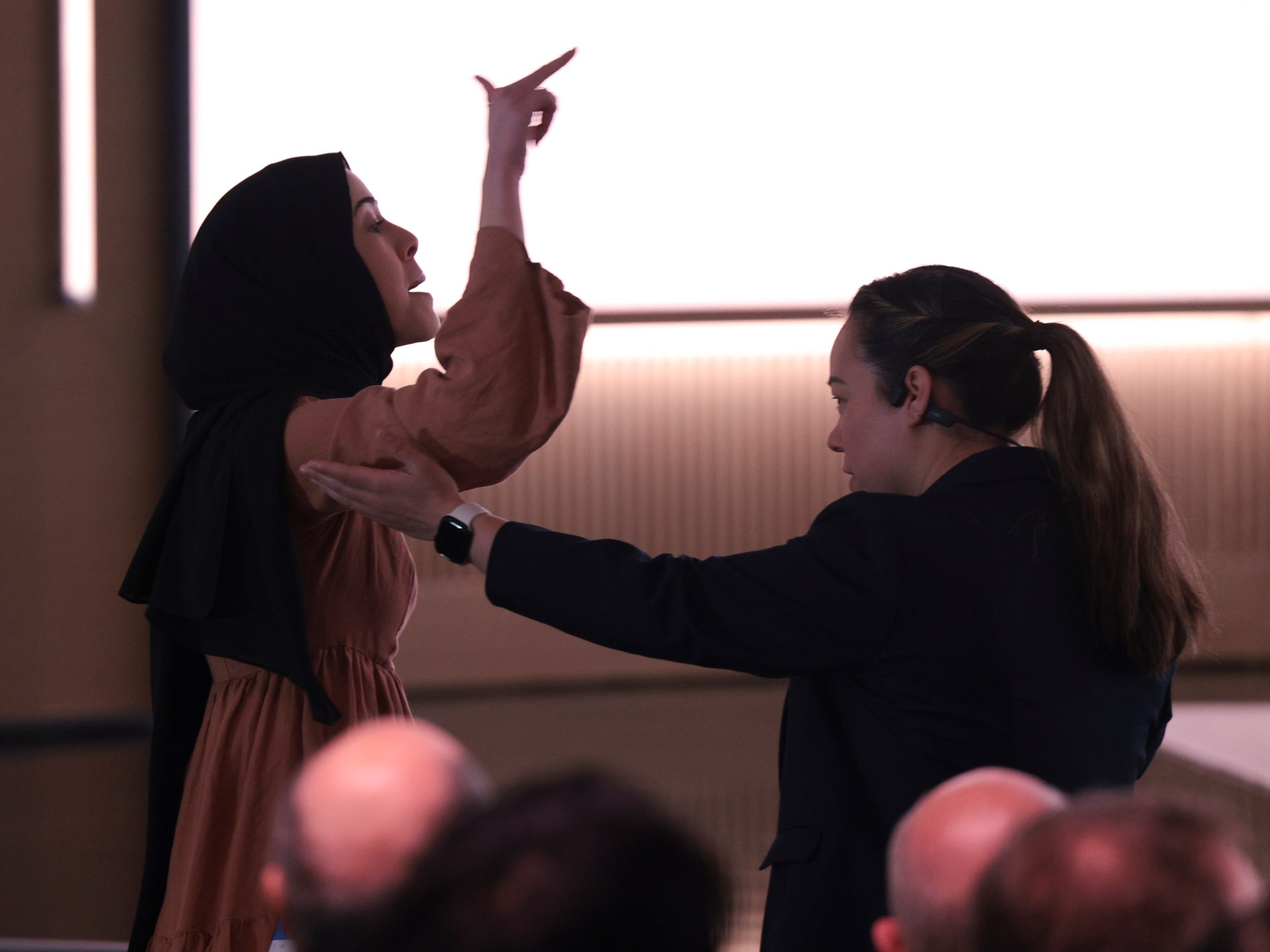Pro-Palestinian Protesters Disrupt Microsoft’s 50th Anniversary Celebration

Microsoft AI Protests: Tensions Rise Amid Humanitarian Concerns
AI Technology and Military Use
Recent reports indicate that artificial intelligence models from Microsoft have been integrated into an Israeli military program aimed at selecting bombing targets in Gaza. This revelation has stirred significant controversy, particularly among Microsoft employees and the public who are concerned about the ethical implications of using AI technology in warfare.
Protests Amid Company Celebrations
A strong display of dissent erupted during Microsoft’s 50th anniversary celebrations when employees voiced their opposition to the company’s involvement with the Israeli military. The protest occurred while Mustafa Suleyman, CEO of Microsoft AI, was sharing updates about the company’s AI assistant, Copilot, to an audience that included notable figures like Microsoft co-founder Bill Gates and former CEO Steve Ballmer.
Emotional Interruption
One of the protestors, Microsoft employee Ibtihal Aboussad, confronted Suleyman on stage, expressing deep frustration over the company’s role in what she described as a "genocide." “You claim that you care about using AI for good, but Microsoft sells AI weapons to the Israeli military. Fifty-thousand people have died, and Microsoft powers this genocide in our region,” she shouted as the crowd watched in shock.
Corporate Response
In response to the protest, Suleyman acknowledged Aboussad’s sentiments but continued with his presentation. During the same event, another employee, Vaniya Agrawal, interrupted the proceedings while Gates, Ballmer, and current CEO Satya Nadella were speaking together for the first time in years. Ejecting protestors from public events demonstrates a growing tension within the company about its ethical stance on military contracts.
Internal and External Dissent
Earlier this year, five Microsoft employees were removed from a meeting with Nadella after protesting the military contracts. While that incident was internal, the recent public showcase amplified the dissent. Following the protests, Microsoft issued a statement reaffirming its commitment to allow all voices to be heard but emphasized the importance of not disrupting business operations.
Broader Context of Humanitarian Crisis
The backdrop of these protests is the increasing humanitarian crisis in Gaza. According to the Gaza Health Ministry, the conflict has resulted in a staggering number of casualties, with reports indicating that at least 50,609 Palestinians have died and 115,063 have been injured during Israel’s military operations. The death toll continues to rise, as many are still unaccounted for in the rubble.
The violence escalated in October 2023, following an attack by Hamas on Israel that resulted in significant casualties and hostages taken. This intense conflict has placed a spotlight on the relationships between tech companies, like Microsoft, and military organizations, igniting debates over the ethical responsibilities of corporations in conflict zones.
The Wider Industry Impact
Microsoft is not alone; several technology firms and educational institutions have come under scrutiny for their connections to Israel during this humanitarian crisis. The perception of complicity in violence has led to global protests, highlighting the need for companies to carefully assess their partnerships and the societal impact of their technologies.
While Microsoft claims to provide avenues for all voices to be heard within the company, the emotional intensity of the recent protests underscores the deep internal conflicts among employees about the ethical implications of their work in AI, especially when it intersects with issues of war and peace. The dialogue surrounding these protests is part of a larger conversation about corporate responsibility in times of humanitarian crisis and violence.






